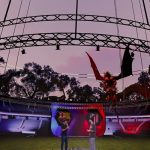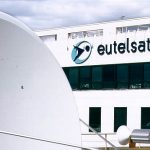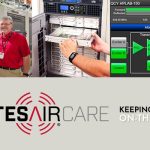Having worked in anti-piracy for a number of years, it surprises me that people really don?t understand piracy, pirates or their consequences.
The Stationers Company of London in 1557 received a Royal Charter giving the company a monopoly on publication and tasking it with enforcing the charter.
Those who violated the charter were labelled pirates as early as 1603; now 400 years later
Today, broadcast piracy is big business. Everyone has seen internet-connected boxes that will let you watch almost anything that your dish can pick up. The system used by most pirates is control word sharing. This system is very simple – in fact, as long ago as 1998, the system was described by John McCormack, and so was called the McCormack hack. The Conditional Access (CA) vendors were aware of this hack, yet chose to ignore it.
At that time the internet was very slow, so CA vendors and broadcasters did not see it as a problem. As the internet moved to high-speed broadband, however, control word sharing became technically and commercially viable.
Common sense would lead you to think that the CA vendors would have been prepared for this, and would have had solutions in place, but this is not true.
The question is, why?
This is the part where the piracy story takes a twist. Between 1998 and 2002, most broadcasters suffered from piracy. At the same time, CA vendors were making huge profits. How is this possible? Well, its simple. Much of the software used by the pirates actually belonged to the CA vendors, and as the pirates always paid the licence fees to the CA vendors on time, a blind eye was turned to the practice. The vendors were happy selling the smart card chips and cards to the pirates.
If one were to examine the financial reports, you would find that some CA vendors had a peak in their profits during high levels of piracy. It should be remembered that CA vendors make a large profit from a card swap, whilst the operator is forced to pay out of fear.
The CA vendors then released the cure to stop the piracy, but, interestingly, this did not protect against control word sharing, which is still the largest form of piracy. Interestingly, the CA vendors knew about this kind of piracy as early as 1988.
As I once told a CA vendor, you build a big mountain that the pirates cant climb, so they simply walk around the bottom.
There have been some interesting and well-publicised court cases recently about CA vendors hacking other CA systems. The most recent involved NDS and Nagra in the US, and both sides claimed victory. Interestingly, even some broadcasters are, or have been, actively involved in piracy.
Piracy is big business and a lot of money is involved. The average person on the street thinks he is getting something for free, when, in truth, the real price is very high.
Solutions are difficult to find. CA vendors are now saying that secure silicon boxes are the way forward, but even I can see a weakness in these systems. To have a secure system you need to control everything, and most broadcasters will not invest that kind of money.
CA vendors know that there are very few large broadcasters to sell to. Their interest is in making a profit, and profit for them is in the licences. The broadcaster needs a subscription to make pay TV pay.
It is very difficult to listen to the so-called experts in CA, when even the chip manufacturers involved are less than economical with the truth about their silicon. When you also see large international companies involved in piracy – albeit at arms length questions need to be asked about the motives of the players.
You have to ask yourself – is there a cure, or is piracy simply an inevitable cost of doing business? At the end of the day, it is the honest broadcasters and the innocent subscribers that lose. Everyone else still turns a profit.
















































































